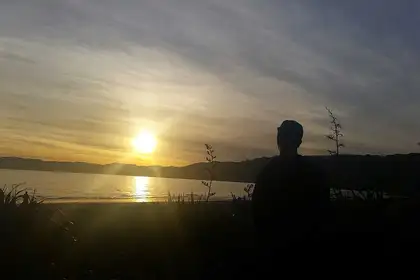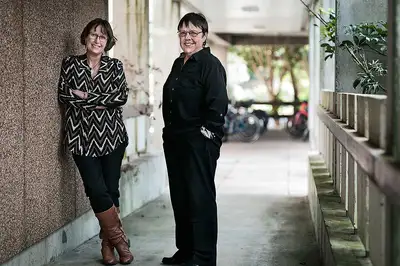
Tōu Ake Mana is a new practice framework for those working with vulnerable Māori youth.
Tōu Ake Mana, a new practice framework developed from research by Massey University School of Social Work staff, will be launched next week in Palmerston North.
The resource, aimed at those working with vulnerable Māori youth (rangatahi), was developed from the Pathways to Resilience and Youth Transitions research projects, led by Professor Robyn Munford and Professor Jackie Sanders. The studies, funded by the Ministry for Business, Innovation and Employment, focus on the experiences of vulnerable young people in their dealings with support services.
Tōu Ake Mana, which has been developed by Massey graduate and former staff member Justina Webster from Kōhatu Creationz, ensures rangatahi Māori are at the heart of the kōrero (conversation) and decision-making, both in the short and long-term, Professor Munford says.
“It’s based on the notion that everyone has mana, and focuses on how practitioners work with vulnerable young Māori in the restoration and maintenance of mana,” she says.
“The framework looks to provide opportunities to ensure the kete of those working with young Māori is always being replenished. It can be used in support and interventions to guide interactions with young Māori on immediate challenges, all the way to long-term goal-setting so that sustainable change is achieved.”

Professor Robyn Munford and Professor Jackie Sanders.
The five indicators of mana
The practice orientations are set out under five indicators of mana:
Mana Māori: Guiding principles of Mātauranga Māori (knowledge) and Tikanga Māori (Māori way of life)
Mana Atua: Spiritual and philosophical connectedness, beliefs and wellbeing
Mana Taiao: Access to cultural and environmental setting that enhance belonging
Mana Tangata: Relational approaches to foster positive transformational opportunities
Mana Motuhake: Promotion of self-determining aspirations
Professor Sanders says practitioners will be able to make better decisions about how to support vulnerable rangatahi, meaning that young people will be more likely to feel their support is relevant and meaningful. “This results in youth being more engaged in interventions and as a result, better outcomes are achieved.
“Our studies tell us that once young people fall out of education, chances are they will go on to experience poor outcomes – ending up in the criminal justice system, or with a lot of major life challenges ahead. They slip between the cracks and then they become a problem for somebody else to solve. The process of solving that problem takes time and respectful work,” Professor Sanders says.
“Leaving school, furthering your education, joining the workforce, establishing an independent base and making identity and lifestyle choices are all part of growing up, yet a significant proportion of young New Zealanders, particularly Māori, find they have insufficient support to help them to successfully make these changes.”
Ms Webster says Tōu Ake Mana honours the voice of rangatahi Māori who have shared their stories, experiences, challenges and opportunities. “Tōu Ake Mana focuses practitioner attention on cultural constructs and urges practitioners to have an understanding of mana and the positive ripple effect this has on practice. It has been a privilege to develop a framework that recognises the importance of a relational focus that acknowledges the potential, growth and development of practitioners in their professional journeys as they work alongside rangatahi Māori.”
Tōu Ake Mana will be launched on Friday, October 25, at the Highbury Whānau Centre in Palmerston North.